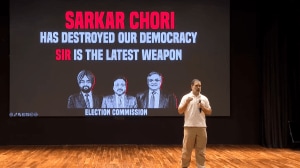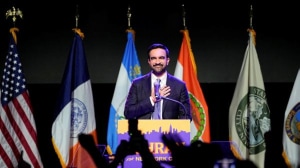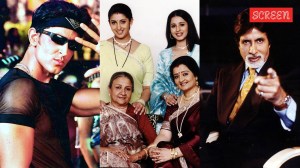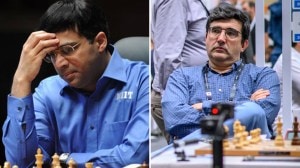The new indian marriage
From HIV testing to pre-nuptial pacts, pre-wedding sexual counselling to sharing expenses, urban educated couples are inventing brand new rules for how to marry

MARRIAGE. You can either leave it or live with it. And though opting fortheformermay justbemorein fashion now, what with diminishing pa- tience andescalatingexpectations,working out a comfort level before you take the plunge may just be the next big thing to work in favour of the institution. Urban educated Indians are turning the traditional assumptions about marriage on their head. Love and emotions are making space to accommodate an HIV test before marriage, celebrations are peppered with prudence rather than extravagance, sexolo- gists are met, and a few “I don’ts” spelt out loud and clear before the“I dos” are said.
Mumbai-based Rupali and Mandar Shinde needed little time to decide before taking the ultimate plunge. Their only pre- requisite: an HIV test before settling down for the marital bliss.“I was the one who ini- tiated the test,” says homemaker Rupali.
“Thankfully it didn’t take me too much time to convince Mandar. There were initial hic- cups but we were both relaxed when our re- sults were negative.”The young couple also went for marriage and AIDS counselling and attribute the success of their relation- ship to this wise decision. Explains Mandar, customer care executive at a bank: “Ours was an arranged marriage and we didn’t know about each other’s past. An HIV test only ensured that both of us would have a secure future. But I told my parents about it only after I married Rupali.”
Some are starting the process even ear- lier. Like Pune-based DrVijendra Patil, who has just completed his MBBS, and got an HIV test done, even as a bride hunt is on for him.Saysthewould-be-groom: “AsadoctorI am looked up to by society. By taking a pre- cautionary HIV test, I want to set an exam- ple for others and more than anything else, it is for my own safety.”
Then there are the bills to be paid. But marriage expenses can be trimmed, and, more importantly, steered clear of parents and their lifelong savings, feel Pune-based Milind and Shubhda Shende. Explains Milind, a mechanical engineer:“Ours was a love marriage and the moment we were ready to tie the knot, we decided not to take a single penny from our parents.” Raison d’etre?
The Shendes wanted to experience what it meant to handle finances as a lesson for the fu-ture. “It made us realise how much parents spend for just one night. We felt the pain be-hind blowing up your hard-earned money,” says homemaker Shubhda, who feels that thanks to high paying jobs that enable ample economic freedom, a self-financed wedding is an option many youngsters are waking up to.
Delhi-based Devna and Deepak Dhyani, working with a BPO, had their plans well chalked out. They had enough savings to fi-nance their wedding. “We used our money to shop for my bridal trousseau and presents for relatives. We used our money wisely; we knew there would be other expenses after our mar-riage,” says Devna. The duo has bought a car, AC and TV on instalments. For Deepak, it was like taking on a challenge: “Financing my own wedding was a way to prove to myself that I can handle life systematically. But this can’t be pos-sible without the support of your spouse.”
Couples are also getting choosy about who to invite to their wedding. “I didn’t want any-one and everyone to be at my wedding. How can you have people for your wedding you’ve never ever seen before?” asks Delhi-based graphic designer Sarah Kapoor. Sarah and her husband Manish got married with a budget of Rs 3.5 lakh, cut down on ceremonies like roka, engagement and mehendi rasam. Says entre-preneur Manish: “Our parents are getting old, why not take care of them? By curbing unnec-essary formalities, we saved a lot, took a house and a car and now we’ll be leaving for our hon-eymoon to Turkey—the expense for which was included in the budget.”
Want to pare the budget even more? Then forget the hundreds of hard copies of the wed-ding invitation. Software architect Ruchir Agarwal and textile designer Shuchi Agarwal sent out Powerpoint invites. Says Ruchir: “We were not in touch with many of our friends but had their email addresses. We scanned the wedding card and mailed it to all our friends.” Adds Shuchi: “A Powerpoint invite is fast, reliable and less time-consuming.”
But money becomes even more important after marriage; indeed, one of the most argued aspects. Pre-nuptial agreements, the latest buzzword in relationships, aims to tackle that issue. A pre-nup, according to Supreme Court advocate Deepak Nargolkar, is “an agreement by which two persons agree to stay together— manandwoman—for aspecified period, andif after theexpiryofthatperiod, theydecidenotto continuethe relationship, they arefreetoleave each other. There can be no claim to property, unless it is decidedbyanindividual party.” Nar-golkar has received enquiries about pre-nup-tials and believes that soon, more and more coupleswill signa pact beforegettingmarried.
Like Mumbai-based Dr Kishore Deb and Dhvani Shah did, depite drawing flak from their friends and parents. The couple’s contract clearly states that during their two years of staying together, if their ideas and way of living do not match, then there would neither be any claim to any property or cash whatsoever. “I took this decision because I see a lot of mar-riages falling apart these days. Signing a con-tract might seem like the most insensitive thing to do but at least your future is secure,” explains Deb. For Shah too, it’s a matter of conve-nience: “What’s the harm in having no compli-cations?
Yeah, it might seem like you’re signing an agreement to part ways even before you’re married, but why look at it negatively? If things work out in our favour, Kishore and I might even marry.”
That sexual norms have undergone a major change is not evident just from the increasing live-in relationships but also by the way cou-ples are addressing the issue. Pune-based sex-ologist Rajendra Sathe says more and more women are coming forward to tackle issues re-lated to themselves and their partners’ sexual health. “Young men and women want to dis-cuss issues such as impotence, lack of sexual desire and sexual habits with other partners,” he says. “Most of the women have been sexu-ally active before marriage and they know what sex is. In the past one year, the number of women coming to talk about sexual relations before marriage has gone up by 50 per cent.” Adds Delhi-based sexologist Vijay Arora: “Cou-ples are coming to me before marriage to dis-cuss sexual preferences, even impotence.’’
So what is it—the increasing lack of faith in marriage, or desperate measures to strengthen the institution? Delhi-based sociologist Sangi-eta Kumarr reasons out the changing attitudes. “After economic liberalisation, life has sud-denly taken an upswing. Everything has be- come too fast and youngsters these days are very careful about investing anywhere—finan-cially or emotionally. While insecurity in rela-tionships is also one of the main reasons why couples are adopting the newer means of mar-riage, the entire BPO culture is responsible for an upheaval in relationships. Issues like self-fi-nanced weddings or a contract prior to mar-riage may still not be accepted in our society, but it’s a way to save a marriage. Who wants to carry excess emotional baggage anyway?”
She also feels that understanding each other’s individual needs and seeing one an-other as separate entities have worked towards scripting a change in attitude. Pune-based dental surgeon Ashish Chakranarayan and Ludi-ana- based Dr Sapna Paul, who married four years ago, and have been together for only five months, feel their understanding of each other’s career needs has made them come closer, despite their physical separation. “Tele-phone conversations keep the romance alive, and we manage to fight over the phone too—so the marriage is normal,’’says Ashish. Maybe marriages are still being made in heaven, but the 21st century Indian couple is now acknowledging another adage too: God helps those who help themselves.


- 01
- 02
- 03
- 04
- 05





























